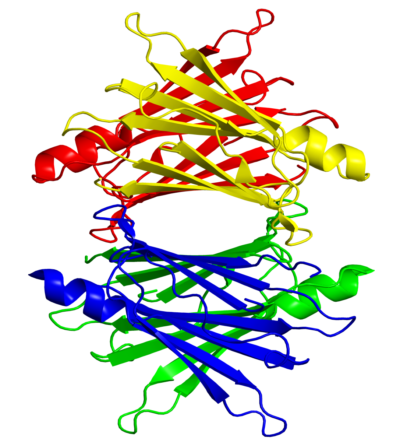
Transthyretin amyloidosis cardiomyopathy
Transthyretin amyloidosis cardiomyopathy (ATTR-CM) is a specific form of heart failure characterized by the deposition of amyloid fibrils in the heart. ATTR-CM can be classified as sporadic, associated with the deposition of wild-type transthyretin (ATTRwt), or hereditary, associated with genetic variants of TTR (ATTRv). The prevalence of ATTR-CM is currently estimated at ~10% of patients with heart failure with preserved ejection fraction (HFpEF). Also in patients with severe aortic valve stenosis, ATTR is common. Diagnosis is however difficult and unfortunately often missed.
Until recently, ATTR-CM was considered an untreatable condition. However, several novel drugs are currently underway working on three levels: stabilizing TTR, inhibition production of TTR in the lever with RNA interference and removal of fibrils in the heart. For example a stabilizing drug (tafamidis), which is a small molecule that binds TTR in the plasma and promotes stability and a normal TTR conformation, was recently shown to improve survival and reduce hospitalisations in patients with ATTR-CM.
Amyloidosis research at the department of cardiology is highly interdisciplinary. Several studies are currently being initiated focusing on prevalence in the general HFpEF population (VIP-amyloid study) and in patient with severe aortic valve stenosis. In this latter population direct hemodynamic effects of unloading are being investigated (AMYLO-TAVI). Together with the department of Nuclear Medicine and Internal medicine we participate in the I-CARE project. This project is a multinational consortium with partners in Germany and the UK and is financed by the Dutch Heart Foundation, British Heart Foundation and the DZHK. I-CARE will further shed light on the mechanism of action of stabilizing drugs and to identify responders versus non-responders.

Transthyretin structure
People involved
International collaborations
- Prof. dr. Riemer Slart (Department of Nuclear Medicine and Molecular Imaging, UMCG)
- Dr. Hans Nienhuis (Department of Internal Medicine, UMCG)
